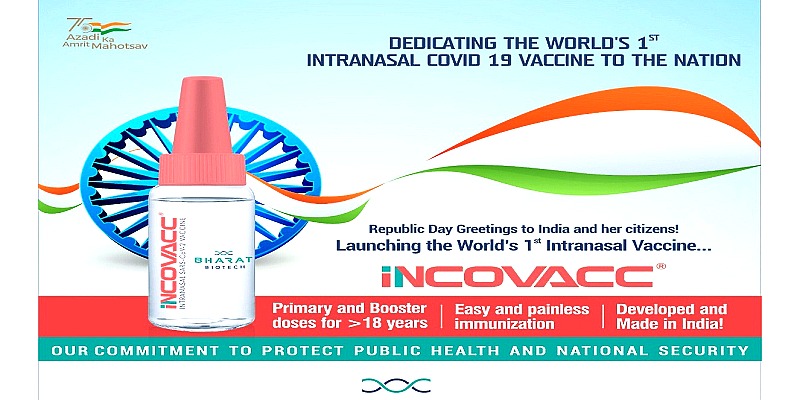
The world’s first intranasal Covid-19 vaccine was launched in India’s New Delhi on Friday.
Indian Health Minister Mansukh Mandaviya and Science and Technology Minister Jitendra Singh launched Bharat Biotech’s nasal vaccine, iNCOVACC, on the occasion of Republic Day, reports our New Delhi correspondent.
The nasal vaccine BBV154 had received the Drugs Controller General of India’s (DCGI) approval in November last for restricted emergency use among adults as a heterologous booster dose.
The two-dose nasal vaccine can be administered to people above the age of 18 years as primary doses as also as heterogeneous booster dose, which means it can be given to those who earlier received vectored vaccines.
The iNCOVACC vaccine is priced at Indian Rupee 325 per dose for large volume procurement by governments in India, according to an official statement.
The nasal vaccine can be stored and disbursed in two to eight degrees Celsius temperature.
The intranasal vaccine has been developed by Bharat Biotech International Limited (BBIL), a pharma company in the southern city of Hyderabad, in collaboration with Biotechnology Industry Research Assistance (BIRAC), a PSU under India’s Ministry of Science and Technology.
Bharat Biotech also brought out India’s first indigenous anti-Covid injection which was one of the main vaccines (the other being Covishield manufactured by another Indian company Serum Institute of India) of India’s fight against the virus.
The nasal drop vaccine is aimed at benefiting low and middle-income countries, officials said.
The iNCOVACC is a cost effective Covid vaccine which does not require syringes, needles, alcohol wipes or bandage, thus saving costs related to procurement, distribution, storage and biomedical waste disposal which is routinely required for injectable vaccines.
It utilizes a vector-based platform which can be easily updated with emerging variants leading to large scale production, within a few months. These rapid response timelines, combined with the ability of cost effective and easy intranasal delivery, makes it an ideal vaccine to address future infectious diseases.
A rollout of iNCOVACC is expected to begin in private hospitals that have placed advance orders. Initial manufacturing capacity of several million doses per annum has been established, this can be scaled up to a billion doses as required.
ADVERTISEMENT
ADVERTISEMENT








































